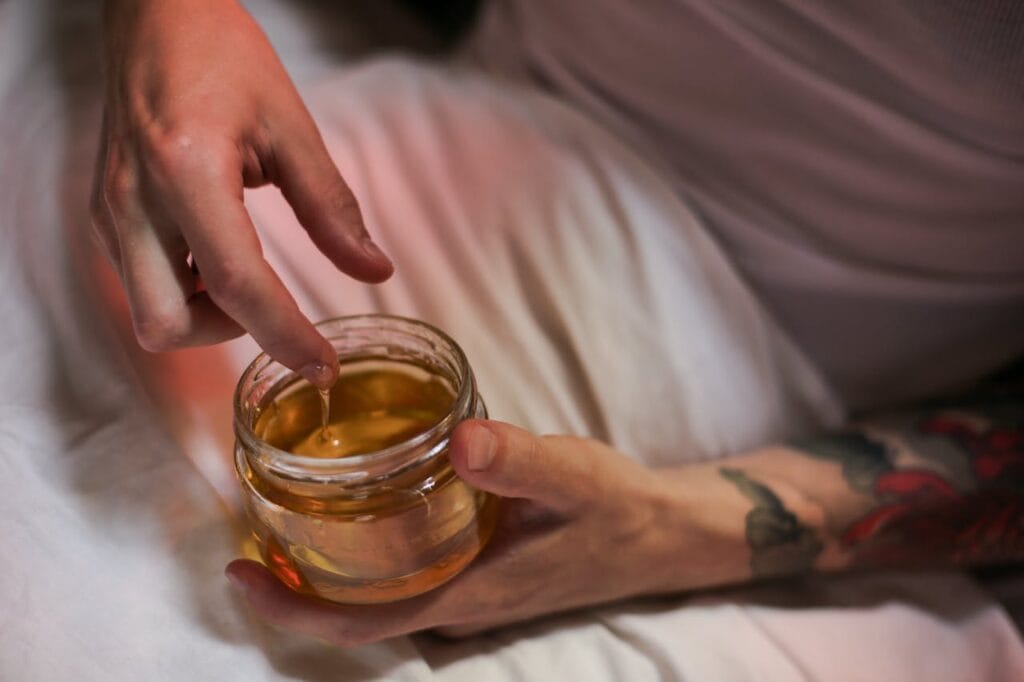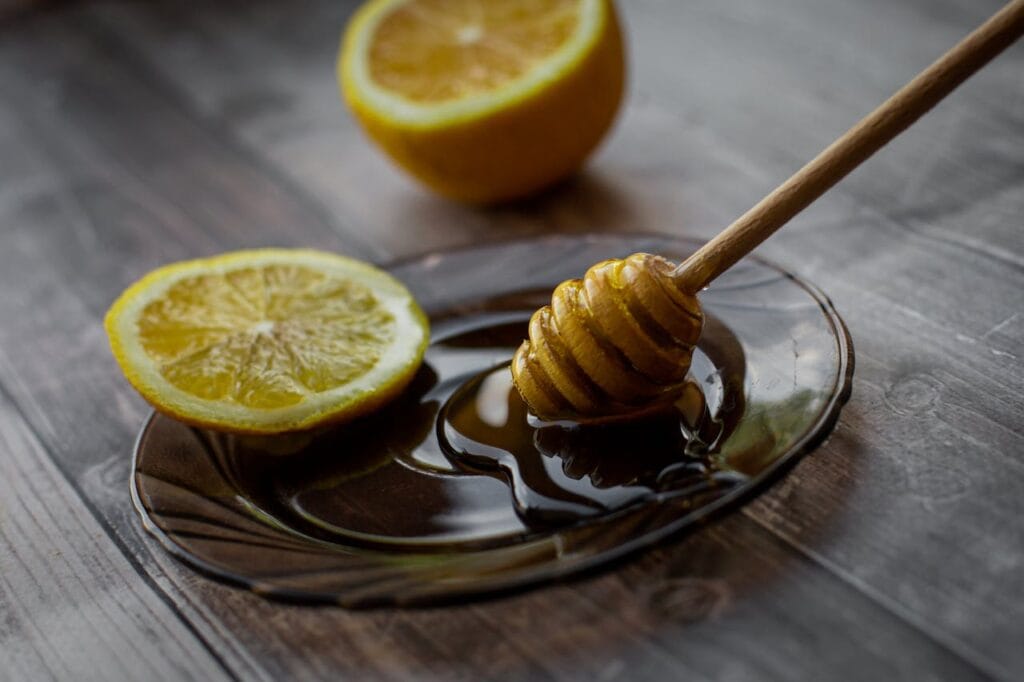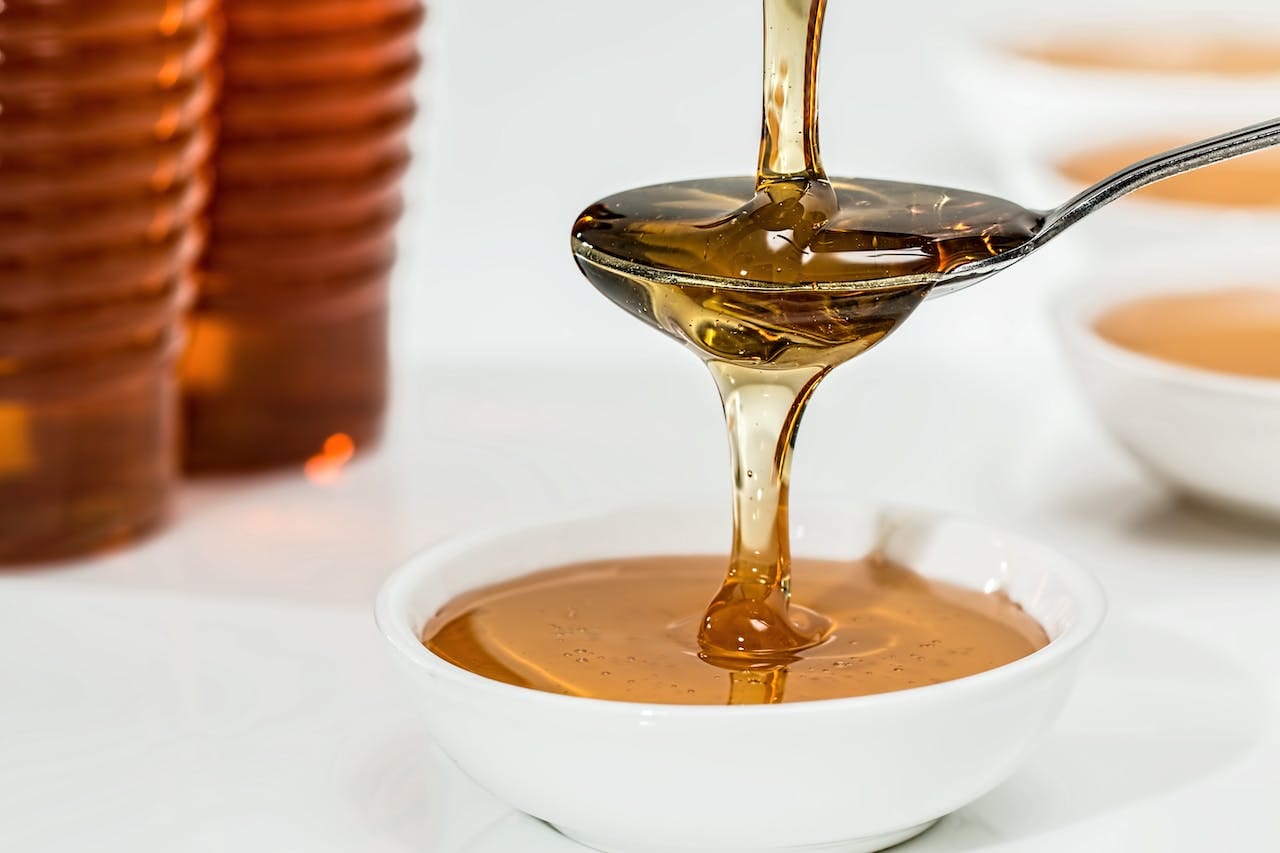It is believed that for colds and flu it is useful to drink tea or milk with honey or simply consume this product. We decided to check whether such recommendations have a scientific basis.
About medicinal properties they write honey for colds Media And informational portals. His recommend use at the first signs of disease and specialized resourcesdedicated to this product. Approved, What honey Helps remove viruses from the body, improves immunity and relieves cough. Shares this opinion and Rospotrebnadzor. However, some experts doubt in the effectiveness of such a treatment.
Humanity began extract honey 8,000 years ago - this is evidenced by cave paintings discovered in Spain. This product was used as a food sweetener and has also been used as a medicinal product since ancient times. funds - for the treatment of wounds, intestinal diseases and skin ailments. Speak out during the COVID-19 pandemic assumptionsthat honey can be effective in combating this virus, but there have not been enough studies to confirm this. "Verified" already wrote that honey appears to have some effectiveness in treating minor thermal burns, although more high-quality research is also needed to be sure.
Usually with a cold implied upper respiratory tract infections that affect the nose, throat, sinuses, and windpipe. US Centers for Disease Control (CDC) claimthat colds can be caused by more than 200 viruses that cause a runny nose, cough, sore throat, fever and other symptoms. There is no specific treatment for a cold; most often it goes away completely on its own within 10–14 days (although some symptoms, such as cough, may persist much longer). To speed up your recovery, UK National Health Service (NHS) experts advise Get plenty of rest, drink plenty of fluids, and gargle with salt water to relieve pain.

However, in some cases, during or after a viral infection, it may develop also secondary, caused by bacteria (for example, bacterial angina or pneumonia). According to various estimates, this is happening in 10–30% of cases. As the name suggests, these diseases are caused by various microorganisms, and, unlike viruses, bacterial infections can be successfully treated with antibiotics.
Current research suggests that honey actually has some antibacterial, antioxidant And anti-inflammatory properties. However, the composition of honey and, accordingly, its properties may differ depending on the pollen of which plant it was made from, the region of collection and other factors. Thus, in 2018, British scientists conducted review existing research and found that manuka honey (a tree growing in Australia and New Zealand) has more pronounced antibacterial properties than other types of this product. It is difficult to predict how effective this or that honey will be in the fight against infections and their symptoms.
Studies on the effect of honey on cough at night in children were conducted at different times in several countries around the world: in 2007 in USA, in 2012 Israel and in 2014 Italy. The study designs were similar: children with an acute cough were given honey, drugs, or a placebo for several days. The parents then filled out a questionnaire about how much they thought the child's condition had improved. In all three cases, according to the survey, honey was named the most effective remedy, but it is worth considering that the results obtained from parents are partly subjective. Specialists of the authoritative Cochrane Library, who have published review Scientific papers in 2018, although they noted that some studies have shown the benefits of honey in treating coughs in children, nevertheless did not consider this evidence to be convincing enough. Experts from the Mayo Foundation for Medical Education and Research also adhere to point of view that honey can be useful in treating cough.

In 2020, scientists from Oxford University conducted meta-analysis existing studies at that time on the effect of honey on the health of patients with upper respiratory tract infections. It turned out that honey did help reduce the frequency and severity of coughs - in this it was more effective than other treatments studied in 14 selected papers from different scientific databases. Scientists noted that upper respiratory tract infections are the most common reason for prescribing antibiotics. However, such a decision by doctors is ineffective (most of these infections are viral) and even harmful, since excessive use of such drugs can lead to sustainability bacteria to them. In this sense, honey, at least, will definitely not cause harm, while alleviating symptoms. Researchers aren't sure exactly how honey helps heal: it could be due to the antioxidants it contains or its viscous consistency, which allows it to coat irritated mucous membranes. At the same time, the authors of the meta-analysis emphasize that in order to talk about the benefits of this product, additional experiments and observations are needed.
There is also some evidence that honey may help relieve sore throats as well. In 2016, a group of Indian scientists published the results experiment: 200 patients with a sore throat were divided into two groups, one was given only drug treatment, and the other was also given a tablespoon of honey twice a day. The experiment lasted 15 days, doctors assessed the condition of the participants three times. It turned out that pain in patients who, in addition to medications, also consumed honey, went away faster.
It is important to remember that honey may cause allergies, so it must be used with caution. In addition, it is contraindicated in infants under one year of age, as it can cause infant botulism.
Thus, honey is unable to defeat a viral infection - the most common cause of colds. However, there is limited research to suggest that it may be effective in relieving and relieving some cold symptoms more quickly, with few to no side effects. At the same time, it is definitely not worth considering it as the main means of treatment. First, more research is needed to prove its effectiveness. Secondly, despite the common name, different types of honey differ significantly in their properties, so the positive effect revealed in studies is not guaranteed when consuming other varieties of this product.
Cover photo: pexels.com
Read on the topic:
- Mayo Clinic. Honey
- Is it true that burns can be cured with oil, urine or honey?
- Is it true that honey in hot tea becomes poison?
If you find a spelling or grammatical error, please let us know by highlighting the error text and clicking Ctrl+Enter.






